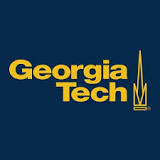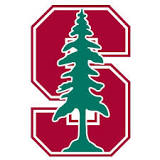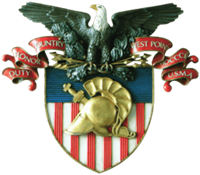What do they do?
Design, develop, test, and evaluate integrated systems for managing industrial production processes, including human work factors, quality control, inventory control, logistics and material flow, cost analysis, and production coordination.
Also known as:
Continuous Improvement Engineer, Engineer, Facilities Engineer, Industrial Engineer, Operations Engineer, Plant Engineer, Process Engineer, Production Engineer, Project Engineer, Quality Engineer, Research and Development Engineer (R and D Engineer)
-
13.5%
Change
Ranks #41 in job growth rate1,150Job Openings
Ranks #6 in net job growth
-
Georgia Institute of Technology-Main Campus
Atlanta, GA
-
United States Military Academy
West Point, NY
-
Clemson University
Clemson, SC
-
Stanford University
Stanford, CA
-
Northwestern University
Evanston, IL
Looking for colleges that offer a specific major? Use the College Match Tool to find your best-matched schools and discover your estimated Net Price!
- Doctorate or Professional Degree (3%)
- Master's degree (19%)
- Bachelor's degree (52%)
- Associate's degree (8%)
- Some college, no degree (11%)
- High school diploma equivalent (6%)
- Less than high school diploma (1%)
Most Popular Majors that prepare Industrial Engineers
-
#1
-
Degrees Granted
5,537
-
Female Students
1,976
-
Male Students
3,561
-
Median Starting Salary
$61,467
-
-
#2
-
Degrees Granted
1,388
-
Female Students
294
-
Male Students
1,094
-
Median Starting Salary
$51,600
-
-
#3
-
Degrees Granted
724
-
Female Students
228
-
Male Students
496
-
Median Starting Salary
$66,400
-
-
#4
-
Degrees Granted
437
-
Female Students
82
-
Male Students
355
-
Median Starting Salary
$62,000
-
-
#5
-
Degrees Granted
329
-
Female Students
138
-
Male Students
191
-
Median Starting Salary
$61,100
-
People in this career often have these skills:
- Reading Comprehension - Understanding written sentences and paragraphs in work-related documents.
- Active Listening - Giving full attention to what other people are saying, taking time to understand the points being made, asking questions as appropriate, and not interrupting at inappropriate times.
- Critical Thinking - Using logic and reasoning to identify the strengths and weaknesses of alternative solutions, conclusions, or approaches to problems.
- Speaking - Talking to others to convey information effectively.
- Complex Problem Solving - Identifying complex problems and reviewing related information to develop and evaluate options and implement solutions.
- Writing - Communicating effectively in writing as appropriate for the needs of the audience.
- Monitoring - Monitoring/Assessing performance of yourself, other individuals, or organizations to make improvements or take corrective action.
People in this career often know a lot about:
- Engineering and Technology - Knowledge of the practical application of engineering science and technology. This includes applying principles, techniques, procedures, and equipment to the design and production of various goods and services.
- Production and Processing - Knowledge of raw materials, production processes, quality control, costs, and other techniques for maximizing the effective manufacture and distribution of goods.
- Mechanical - Knowledge of machines and tools, including their designs, uses, repair, and maintenance.
- Design - Knowledge of design techniques, tools, and principles involved in production of precision technical plans, blueprints, drawings, and models.
- English Language - Knowledge of the structure and content of the English language including the meaning and spelling of words, rules of composition, and grammar.
- Mathematics - Knowledge of arithmetic, algebra, geometry, calculus, statistics, and their applications.
- Computers and Electronics - Knowledge of circuit boards, processors, chips, electronic equipment, and computer hardware and software, including applications and programming.
- Administration and Management - Knowledge of business and management principles involved in strategic planning, resource allocation, human resources modeling, leadership technique, production methods, and coordination of people and resources.
- Customer and Personal Service - Knowledge of principles and processes for providing customer and personal services. This includes customer needs assessment, meeting quality standards for services, and evaluation of customer satisfaction.
- Education and Training - Knowledge of principles and methods for curriculum and training design, teaching and instruction for individuals and groups, and the measurement of training effects.
People in this career often have talent in:
- Oral Comprehension - The ability to listen to and understand information and ideas presented through spoken words and sentences.
- Written Comprehension - The ability to read and understand information and ideas presented in writing.
- Oral Expression - The ability to communicate information and ideas in speaking so others will understand.
- Written Expression - The ability to communicate information and ideas in writing so others will understand.
- Deductive Reasoning - The ability to apply general rules to specific problems to produce answers that make sense.
- Inductive Reasoning - The ability to combine pieces of information to form general rules or conclusions (includes finding a relationship among seemingly unrelated events).
- Problem Sensitivity - The ability to tell when something is wrong or is likely to go wrong. It does not involve solving the problem, only recognizing that there is a problem.
- Information Ordering - The ability to arrange things or actions in a certain order or pattern according to a specific rule or set of rules (e.g., patterns of numbers, letters, words, pictures, mathematical operations).
- Near Vision - The ability to see details at close range (within a few feet of the observer).
- Category Flexibility - The ability to generate or use different sets of rules for combining or grouping things in different ways.
- Selective Attention - The ability to concentrate on a task over a period of time without being distracted.
People in this career often do these activities:
- Estimate operational costs.
- Determine operational methods.
- Analyze project data to determine specifications or requirements.
- Confer with technical personnel to prepare designs or operational plans.
- Communicate technical information to suppliers, contractors, or regulatory agencies.
- Discuss designs or plans with clients.
- Evaluate designs or specifications to ensure quality.
- Recommend technical design or process changes to improve efficiency, quality, or performance.
- Document technical design details.
- Create graphical representations of industrial production systems.
- Supervise engineering or other technical personnel.
- Develop technical methods or processes.
- Review technical documents to plan work.
- Prepare procedural documents.
- Prepare contracts, disclosures, or applications.
- Prepare operational reports.
- Direct quality control activities.
- Implement design or process improvements.
- Analyze design or requirements information for mechanical equipment or systems.
- Schedule operational activities.
- Devise research or testing protocols.
This page includes data from:

 Occupation statistics: USDOL U.S. Bureau of Labor Statistics Occupational Employment Statistics
Occupation statistics: USDOL U.S. Bureau of Labor Statistics Occupational Employment Statistics
 Videos: CareerOneStop, USDOL/ETA and the Minnesota Department of Employment & Economic Development
Videos: CareerOneStop, USDOL/ETA and the Minnesota Department of Employment & Economic Development









